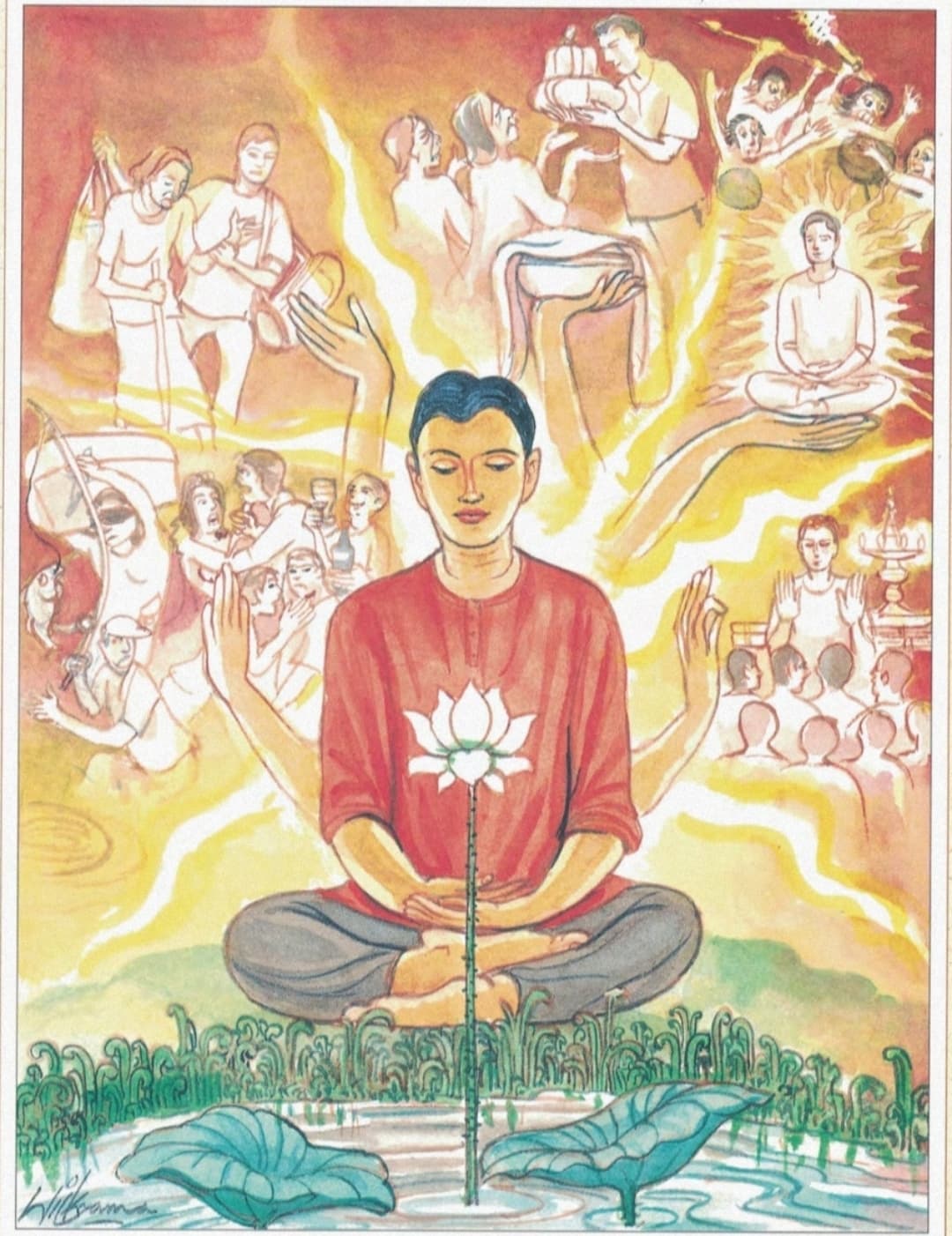Hi LA,
I can reply to this from my phone in my hotel room. Some of the other posts I need to find a few harder to find texts from computer.
Of course fully ordained bhikkhus are the great field of merit in Dhamma, they truly strive to understand and develop the way of the Buddha.
However even laypeople can gain much on the path.
https://www.accesstoinsight.org/lib/aut … tml#fnt-15
Bhikkhave = “Bhikkhus.” This is a term for addressing persons who accept the teaching.
Bhikkhu[15] is a term to indicate a person who earnestly endeavors to accomplish the practice of the teaching. Others, gods and men, too, certainly strive earnestly to accomplish the practice of the teaching, but because of the excellence of the bhikkhu-state by way of practice, the Master said: “Bhikkhu.” For amongst those who accept the teaching of the Buddha, the bhikkhu is the highest owing to fitness for receiving manifold instruction. Further, when that highest kind of person, the bhikkhu, is reckoned, the rest too are reckoned, as in regard to a royal procession and the like, when the king is reckoned, by the reckoning of the king, the retinue is reckoned. Also the word “bhikkhu” was used by the Buddha to point out the bhikkhu-state through practice of the teaching in this way: "He who practices this practice of the Arousing of Mindfulness is called a bhikkhu." He who follows the teaching, be he a shining one [deva] or a human, is indeed called a bhikkhu. Accordingly it is said:
“Well-dressed one may be, but if one is calm,
Tamed, humble, pure, a man who does no harm
To aught that lives, that one’s a brahman true.
An ascetic and mendicant too.”[[16]
Also see this sutta where these sotapanna lay people talk with the Buddha.
https://suttacentral.net/sn55.53/en/suj … ript=latin
Linked Discourses 55.53
6. A Wise Person
With Dhammadinna
At one time the Buddha was staying near Benares, in the deer park at Isipatana. Then the lay follower Dhammadinna, together with five hundred lay followers, went up to the Buddha, bowed, sat down to one side, and said to him:
“May the Buddha please advise and instruct us. It will be for our lasting welfare and happiness.”
“So, Dhammadinna, you should train like this: ‘From time to time we will undertake and dwell upon the discourses spoken by the Realized One that are deep, profound, transcendent, dealing with emptiness.’ That’s how you should train yourselves.”
“Sir, we live at home with our children, using sandalwood imported from Kāsi, wearing garlands, perfumes, and makeup, and accepting gold and money. It’s not easy for us to undertake and dwell from time to time upon the discourses spoken by the Realized One that are deep, profound, transcendent, dealing with emptiness. Since we are established in the five training rules, please teach us further.”
“So, Dhammadinna, you should train like this: ‘We will have experiential confidence in the Buddha … the teaching … the Saṅgha … And we will have the ethical conduct loved by the noble ones … leading to immersion.’ That’s how you should train yourselves.”
“Sir, these four factors of stream-entry that were taught by the Buddha are found in us, and we embody them. For we have experiential confidence in the Buddha … the teaching … the Saṅgha … And we have the ethical conduct loved by the noble ones … leading to immersion.”
“You’re fortunate, Dhammadinna, so very fortunate! You have all declared the fruit of stream-entry.”
So the venerable Bhikkhus are the leaders of the sasana. Yet I think it takes a real vocation - great merit- to be able to endure and thrive as a Bhikkhu. Not an easy life.
For those who remain in the laylife it is good to know that progress can still be made.
